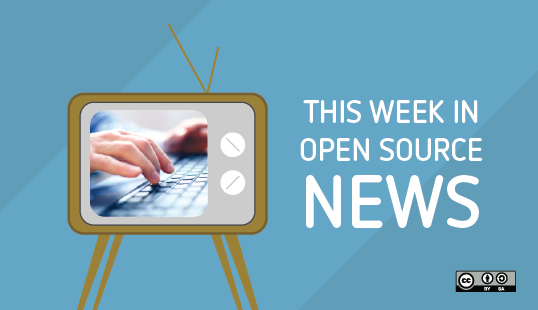In this week’s edition of our open source news roundup, we share accessibility updates from Facebook and IBM, Microsoft's admission that it was wrong about open source, and more headlines you need to know.
IBM launches open source accessibility toolkit
Simeon McAleer, IBM's program director of accessibility, announced in a blog post that the company will launch an Equal Access Toolkit. The open source offering and design toolkit aims to help designers and developers embed accessibility into their workflows, without the need for outside consultation.
The toolkit has a set of components that make accessibility easier to quantify. There are Equal Access guidelines for teams creating accessible enterprise offerings and an Accessibility Checker which audits web-based components and solutions for accessibility issues. IBM says its toolkit's key advantage is accessibility guidance through each stage of development, from initial research to the product launch.
Microsoft will open source its Fluid Framework and bring it to Outlook
Microsoft’s Jared Spataro announced that Fluid Framework—a platform for developers to improve collaboration on documents—will be open sourced. Spataro said that Fluid Framework's code will be added on GitHub within the next few weeks. Developers will be able to build new, collaborative experiences using Fluid Framework via JavaScript APIs.
Along with this open source announcement, Spataro shared that Microsoft will add Fluid Framework to some of Microsoft's productivity apps. These include Outlook, where users will be able to use Fluid Components to auto-update charts, tables, and task lists. Office.com users will also be able to use Fluid Framework shortly via @mentions and activity feeds per document.
7 in 10 apps use unpatched open source libraries
The State of Software Security (SOSS): Open Source Edition research found that seven in 10 apps use at least one unpatched open source library. The research analyzed open source libraries across the Veracode platform, which includes 351,000 unique external libraries.
Chris Eng, chief research officer at Veracode, said these results should cause developers to prioritize patching and framework-specific security. Eng stressed that dependencies between libraries leave open source software vulnerable to a range of attacks beyond code. Vulnerabilities also varied by framework: JavaScript, Ruby, PHP, and Java get most of their attacks from transitive inclusions, while .NET, Swift, and Go have more direct dependencies.
Facebook makes its React Native open source framework fully accessible
Facebook announced on Global Accessibility Awareness Day that it has taken the GAAD pledge to make its open source React Native framework fully accessible. The social network also shared an infographic with tips encouraging social media users to make their posts more accessible for all.
React's documentation shares that it uses HTML techniques to build accessible websites. Web accessibility (also known as a11y) allows assistive technology to interpret web pages. Alt text within code, image descriptions, and podcast transcriptions are three examples of accessibility.
Microsoft's president says his past open source stance was "on the wrong side of history"
What a difference two decades makes. Back in 2001, then-Microsoft CEO Steve Balmer called Linux “a cancer that attaches itself in an intellectual property sense to everything it touches."
In a recent interview with MIT, Brad Smith—Microsoft's current president—expressed regret at the company's past stance. Smith—who worked as one of Microsoft's lawyers when the company still fought against open source—said that he and Microsoft had both been "on the wrong side of history when open source exploded at the beginning of the century. The good news is that... if life is long enough... you can learn that you need to change." Following open source acquisitions including Xamarin and GitHub, Microsoft plans to ship a full Linux kernel in a Windows 10 update to release later this month.
In other news
- SPACE10 creates open source bee homes for World Bee Day
- Percona users detail open source database challenges
- EA to open source PC Game Command & Conquer, enabling you to create crazy mods
- Why slowing new feature development can be the best way to maintain an open source project
- Bitcoin wallet makers SatoshiLabs now building open source chips
Thanks, as always, to Opensource.com staff members and Correspondents for their help this week.







Comments are closed.